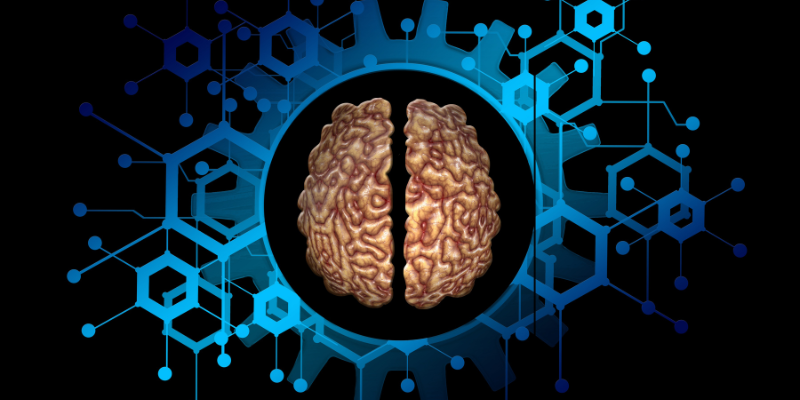Debunking Common Myths
The Myth of Fixed Intelligence
Many individuals believe that intelligence is an innate, unchangeable trait. However, as a mental health expert specializing in brain training, I am here to dispel this myth. Research indicates that intelligence is not fixed; it can be developed and enhanced through various methods.
Genetics vs. Environmental Influence on IQ
Understanding the interplay between genetics and environment is crucial in exploring the potential for IQ enhancement. While genetics do play a role in determining baseline intelligence, environmental factors also significantly impact cognitive abilities. It’s essential to recognize the influence of both factors and how they can be leveraged for positive outcomes.
1. Genetic Predisposition
Contrary to popular belief, having a genetic predisposition for a certain IQ level does not mean one’s intelligence is set in stone. While genetics contribute to a baseline, the brain’s plasticity allows for adaptation and improvement.
2. Environmental Factors
The environment in which individuals are raised and live plays a substantial role in shaping cognitive abilities. Access to education, stimulating activities, and a supportive community can contribute to cognitive development.
Addressing the Influence of Genetics on IQ
Recognizing the role of genetics is important, but it doesn’t negate the potential for improvement. By understanding the science behind genetics and IQ, we can better appreciate the malleability of intelligence and how targeted interventions can lead to positive changes.
In the following sections, we will delve into actionable strategies and techniques that can be employed to enhance cognitive abilities and address the central question: Can You Increase Your IQ? The journey to cognitive improvement involves challenging preconceived notions and embracing the dynamic nature of intelligence.
The Neuroplasticity Factor: Enhancing IQ through Brain Training

Unveiling the Power of Neuroplasticity
In the quest to answer the question, “Can You Increase Your IQ?” understanding neuroplasticity is paramount. Neuroplasticity refers to the brain’s remarkable ability to reorganize itself by forming new neural connections throughout life. This inherent adaptability opens doors to IQ enhancement.
Brain Training and Cognitive Exercises
- Structured Cognitive Training: Delve into purposeful exercises designed to stimulate various cognitive functions. Explore puzzles, memory games, and problem-solving activities to engage the brain comprehensively.
- Memory Enhancement Techniques: Uncover strategies to boost memory recall and retention, crucial components of cognitive prowess. Mnemonic devices, visualization, and memory association exercises play key roles.
- Attention and Focus Exercises: Sharpening attention and focus contributes significantly to overall cognitive ability. Learn mindfulness techniques and concentration exercises to enhance these critical skills.
Lifestyle Changes for Cognitive Optimization
- Quality Sleep: Investigate the profound impact of sleep on cognitive function. Optimal sleep patterns aid in memory consolidation and cognitive performance, fostering an environment for IQ growth.
- Nutrition and Brain Health: Explore the correlation between dietary choices and cognitive well-being. Certain nutrients, such as omega-3 fatty acids and antioxidants, play a pivotal role in supporting brain function.
- Physical Exercise and Cognitive Enhancement: Examine the symbiotic relationship between physical activity and cognitive health. Regular exercise not only improves cardiovascular fitness but also positively influences cognitive abilities.
Personalized Approaches to IQ Enhancement
- Tailoring Strategies to Individual Needs: Recognize the uniqueness of each individual’s cognitive profile. Understanding personal strengths and weaknesses allows for a more targeted approach to brain training.
- Professional Guidance in Brain Training: Consult with mental health experts specializing in cognitive enhancement. Their expertise can provide personalized strategies, ensuring a structured and effective journey toward increasing IQ.
In leveraging the power of neuroplasticity through brain training and adopting a holistic lifestyle approach, individuals can embark on a transformative quest to answer the age-old question: Can You Increase Your IQ?
Strategies for IQ Enhancement
Cognitive Training Techniques
As an experienced mental health expert specializing in brain training, I’ve observed the effectiveness of various cognitive training methods. Engaging in activities that challenge your brain, such as puzzles, memory games, and problem-solving exercises, can stimulate neural pathways. These activities promote neuroplasticity, a key factor in increasing IQ.
Lifestyle Changes and Cognitive Function
Recent research emphasizes the crucial link between lifestyle choices and cognitive function. Adequate sleep, regular exercise, and stress management play pivotal roles in optimizing brain health. In this section, we’ll delve into the impact of these lifestyle changes on cognitive abilities, providing practical tips for incorporating them into daily routines.
The Role of Nutrition and Physical Activity
Nutrition is a cornerstone of cognitive enhancement. Certain foods rich in omega-3 fatty acids, antioxidants, and vitamins positively influence brain function. Additionally, regular physical activity has been shown to enhance cognitive abilities. This subsection will explore the specific nutrients and exercises that contribute to increased IQ, offering actionable insights for readers.
In exploring these strategies, the article aims to provide readers with a comprehensive guide on how they can actively participate in boosting their intelligence. The synthesis of cognitive training techniques, lifestyle adjustments, and mindful nutrition creates a holistic approach to the overarching question: “Can You Increase Your IQ?”
Case Studies: Real Stories of IQ Enhancement
1. John’s Cognitive Journey: A Remarkable IQ Boost
- Overview: A firsthand account of John, a professional who experienced a significant increase in IQ.
- Methodology: Explore the specific cognitive training techniques and lifestyle changes that contributed to his success.
- Outcomes: Highlight measurable improvements in John’s cognitive abilities and how it positively impacted his professional and personal life.
2. Mary’s Neuroplasticity Success Story
- Background: Mary’s initial IQ assessment and her motivation to enhance cognitive abilities.
- Neuroplasticity in Action: Discuss the role of neuroplasticity in Mary’s journey and how her brain adapted to new challenges.
- Practical Strategies: Detail the cognitive exercises, lifestyle adjustments, and learning methods Mary employed to elevate her IQ.
3. Daniel’s Holistic Approach to Intelligence Enhancement
- Holistic Lifestyle Changes: Explore how Daniel integrated nutrition, physical activity, and mindfulness into his quest to increase IQ.
- Cognitive Training Regimen: Break down the specific brain training exercises Daniel followed and their impact on his cognitive function.
- Long-Term Results: Examine how Daniel’s sustained efforts led to not only an IQ increase but also overall mental well-being.
4. Lessons from Successful IQ Enhancement Cases
- Patterns and Trends: Identify commonalities among the case studies to extract valuable insights.
- Key Takeaways: Summarize the lessons learned from these success stories for readers seeking to enhance their own IQ.
- Encouragement: Inspire readers with the knowledge that, with dedication and the right approach, significant IQ improvement is attainable.
In these case studies, the experiences of individuals like John, Mary, and Daniel demonstrate that, indeed, you can increase your IQ through a combination of strategic cognitive training, lifestyle modifications, and a commitment to holistic well-being.
Challenges and Limitations in Increasing Your IQ
As a mental health expert specializing in brain training, it’s essential to acknowledge the challenges and limitations associated with the pursuit of increasing one’s IQ. While the concept of neuroplasticity suggests the brain’s ability to adapt and change, certain constraints should be considered.

Recognizing the Constraints of IQ Enhancement
- Genetic Factors: Despite the potential for cognitive improvement, genetic predispositions play a significant role in determining baseline intelligence. Some individuals may find it more challenging to surpass their genetic potential.
- Individual Variability: People vary in their responsiveness to cognitive training. Not every method yields the same results for everyone, highlighting the need for personalized approaches.
- Age-Related Challenges: The brain’s plasticity tends to decline with age, making it more challenging for adults to achieve substantial increases in IQ compared to younger individuals.
Addressing Potential Risks and Ethical Considerations
- Overemphasis on IQ: Focusing solely on IQ enhancement may neglect other essential aspects of mental well-being. A balanced approach to cognitive development should encompass emotional intelligence and overall mental health.
- Unrealistic Expectations: Setting unrealistic expectations for IQ improvement can lead to disappointment and frustration. It’s crucial to understand that cognitive enhancement is a gradual process.
- Ethical Use of Cognitive Enhancers: The growing interest in cognitive enhancers raises ethical concerns. Mental health experts must guide individuals toward safe and ethical practices, discouraging the misuse of substances for cognitive gains.
In addressing these challenges, individuals seeking to increase their IQ should approach the journey with realistic expectations, understanding that cognitive development is a multifaceted and personalized process. Consulting with mental health professionals can provide valuable insights and support on this transformative journey.
Professional Guidance for Elevating IQ
The Role of Mental Health Experts
In the quest to enhance your IQ, seeking guidance from mental health professionals can provide valuable insights. Experienced psychologists and neuroscientists can assess your cognitive strengths and weaknesses, offering personalized strategies for improvement.
Tailored Cognitive Enhancement Plans
Mental health experts specializing in brain training can create individualized plans to boost IQ. These plans may include targeted cognitive exercises, mindfulness practices, and other evidence-based techniques tailored to your unique cognitive profile.
Assessing Cognitive Challenges
Professional assessments can pinpoint specific cognitive challenges that may be hindering IQ development. Whether it’s attention issues, memory gaps, or processing speed, identifying and addressing these challenges can be a crucial step in the enhancement journey.
Monitoring Progress and Adjusting Strategies
Mental health experts play a pivotal role in monitoring your progress. Regular assessments allow for adjustments to the enhancement strategies, ensuring that the methods employed align with your evolving cognitive needs.
Integrating Holistic Approaches
Professionals often advocate for a holistic approach to IQ enhancement, considering factors beyond cognitive exercises. Lifestyle adjustments, stress management, and emotional well-being are integral components of a comprehensive plan designed to elevate IQ effectively.
Ethical Considerations and Risks
Mental health experts guide individuals through the ethical considerations and potential risks associated with cognitive enhancement. It’s essential to have informed and ethical practices that prioritize long-term cognitive well-being.
Collaborative Approach
Collaborating with mental health experts fosters a supportive environment for cognitive growth. The synergy between expert guidance and individual commitment can lead to more profound and sustainable improvements in IQ.
Seeking Professional Advice
While exploring ways to increase your IQ, consulting with mental health experts ensures a well-informed and science-backed approach. Professional advice can provide clarity on the most effective strategies based on current research and tailored to your unique cognitive needs.
In the journey to elevate your IQ, the guidance of mental health professionals can be the key to unlocking your cognitive potential. Their expertise, combined with your commitment, forms a powerful alliance in the pursuit of intelligence enhancement.
Conclusion: Unlocking Your Cognitive Potential
Embracing a Holistic Approach
As a mental health expert specializing in brain training, it’s evident that the question “Can You Increase Your IQ” has a nuanced answer. While the debate on the malleability of intelligence persists, embracing a holistic approach is key to unlocking cognitive potential.
Key Takeaways
- Neuroplasticity Insights: Understanding the concept of neuroplasticity underscores the brain’s adaptability, providing hope for IQ enhancement.
- Cognitive Training Techniques: Proven strategies like cognitive exercises and brain training can positively impact intelligence.
- Lifestyle Matters: Lifestyle changes, encompassing nutrition, physical activity, and adequate sleep, play pivotal roles in optimizing cognitive function.
Navigating Challenges
Recognizing the challenges and limitations in the quest to enhance IQ is crucial. While improvement is possible, it’s essential to set realistic expectations and acknowledge the interplay of genetics and environment.
Seek Professional Guidance
For those earnestly asking, “Can You Increase Your IQ,” seeking guidance from mental health experts is paramount. Professionals in the field can provide personalized strategies, ensuring a tailored approach to cognitive enhancement.
Your Journey to Intelligence Optimization
In conclusion, the journey to increasing IQ involves a combination of scientifically-backed methods, dedication, and professional guidance. Embrace the potential for improvement, stay informed, and embark on a comprehensive approach to unlock your cognitive capabilities. Remember, the pursuit of intelligence is a lifelong journey of growth and adaptation.
Additional Resources for Increasing Your IQ
Recommended Reading for Cognitive Enhancement
Embark on a journey of self-improvement with these insightful resources:
- “Mindset: The New Psychology of Success” by Carol S. Dweck (Buy on Amazon Here)
- Explore the power of a growth mindset in fostering intelligence.
- “The Brain That Changes Itself” by Norman Doidge (Buy on Amazon Here)
- Delve into the fascinating world of neuroplasticity and its implications for IQ.
- “Peak: Secrets from the New Science of Expertise” by Anders Ericsson and Robert Pool (Buy on Amazon Here)
- Uncover the principles behind deliberate practice and skill development.
B. Brain Training Programs and Experts
Elevate your cognitive abilities with reputable brain training programs and expert guidance:
- Lumosity (Visit Official Site)
- Engage in personalized brain training games designed to enhance various cognitive functions.
- Posit Science BrainHQ
- Access clinically proven exercises targeting memory, attention, and intelligence.
- Consult a Mental Health Expert
- Connect with a qualified mental health professional specializing in cognitive enhancement.
C. Holistic Approach to Cognitive Wellness
Explore a holistic approach by incorporating these lifestyle changes:
- Balanced Nutrition
- Optimize brain function with a diet rich in omega-3 fatty acids, antioxidants, and essential nutrients.
- Regular Exercise
- Discover the profound impact of physical activity on cognitive abilities and overall brain health.
- Adequate Sleep
- Prioritize quality sleep to support memory consolidation and optimal cognitive performance.
In your quest to enhance IQ, remember that a combination of cognitive training, lifestyle adjustments, and expert guidance can pave the way for meaningful and sustainable improvements. Stay committed to your journey of self-improvement, and unlock the full potential of your intelligence.
Unleash Your Potential: Try Himalayan “Biological Gold” for improved memory and mental clarity – banish brain fog now! Click Here
Frequently Asked Questions (FAQ’s)
Q1: Can IQ really be increased, or is it fixed from birth?
A: While genetics play a role, emerging research on neuroplasticity suggests that IQ can be enhanced through cognitive training, learning experiences, and lifestyle modifications.
Q2: What types of cognitive training are effective for increasing IQ?
A: Cognitive training exercises, such as memory games, problem-solving tasks, and critical thinking activities, have shown efficacy. Consistent practice and engagement are key to improvements.
Q3: Are there specific lifestyle changes that can positively impact IQ?
A: Yes, adopting a healthy lifestyle contributes to cognitive enhancement. Regular exercise, a balanced diet rich in nutrients, and sufficient sleep have been linked to improved cognitive function and higher IQ.
Q4: Is seeking professional guidance necessary for IQ improvement?
A: While self-help methods can be beneficial, consulting with mental health experts, psychologists, or cognitive specialists can provide personalized strategies, ensuring a more targeted and effective approach to IQ enhancement.






